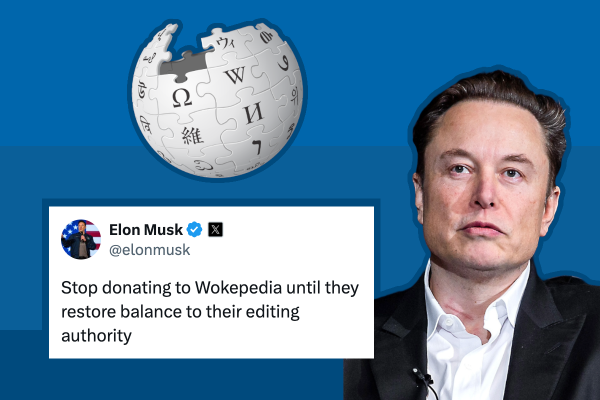The world's richest man has joined a growing chorus of right-wing voices attacking Wikipedia as part of an intensifying campaign against free and open access information. Why do they hate it so much?
https://www.citationneeded.news/elon-musk-and-the-rights-war-on-wikipedia/
#Wikipedia #ElonMusk #USpolitics #USpol
https://www.citationneeded.news/elon-musk-and-the-rights-war-on-wikipedia/
#Wikipedia #ElonMusk #USpolitics #USpol

Elon Musk and the right’s war on Wikipedia
The world's richest man has joined a growing chorus of right-wing voices attacking Wikipedia as part of an intensifying campaign against free and open access information.Molly White (Citation Needed)
Matthew Rimmer hat dies geteilt

Molly White •
#Wikipedia #ElonMusk #USpolitics #USpol
Molly White •
#Wikipedia #ElonMusk #USpolitics #USpol
Molly White •
#Wikipedia #ElonMusk #USpolitics #USpol
Molly White •
#Wikipedia #ElonMusk #USpolitics #USpol
Molly White •
#Wikipedia #ElonMusk #USpolitics #USpol
Molly White •
#Wikipedia #ElonMusk #USpolitics #USpol
Molly White •
#Wikipedia #ElonMusk #USpolitics #USpol
Molly White •
#Wikipedia #ElonMusk #USpolitics #USpol
Molly White •
#Wikipedia #ElonMusk #USpolitics #USpol
Molly White •
#Wikipedia #ElonMusk #USpolitics #USpol
Molly White •
#Wikipedia #ElonMusk #USpolitics #USpol
Hugs4friends ♾🇺🇦 🇵🇸😷 hat dies geteilt
JustRosy •
Hugs4friends ♾🇺🇦 🇵🇸😷 •
JustRosy •
cognitively accessible math •
Hugs4friends ♾🇺🇦 🇵🇸😷 •